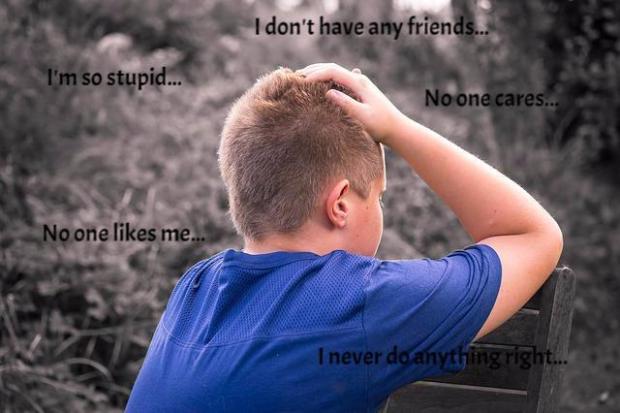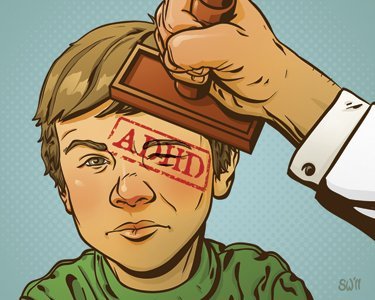Last post I asked you to write down as many positive things about yourself you can think of in 1 minute. I bet some of you struggled with this…if not great! You might not need to read about self-esteem. However, the flip side is I bet you can come up with double or more negative thoughts about yourself in less than a minute. Right? And the sad part is that we tell ourselves these negative things all day every day. We “bully” ourselves!
Kids do the same thing! “I’m so ugly…I’m fat…I’m stupid…No one likes me at this school…I can’t do anything right…I never do the right thing…I’m going to fail this test/class/grade…no one is going to pick me to be on their team…my parents hate me…I have no friends…” The list goes on. Now add to those negative thoughts negative perceptions.
Here’s an example: (I will use a personal experience with you based on my own child who I will call B.)
Me: How did your test go today?
B: I made an 67.
Now I could say: What?! But you studied so hard! How could you fail?!
(My child is a perfectionist, and he always wants to be the best. If I had said that, he would have burst into tears.) Instead, I try to keep his personality in mind and I respond like this:
Me: Wow that stinks…What do you think you missed?
B: I don’t know, it was really hard. I’m just no good at math! I hate it!
Me: It was a hard test, I’m sure you will do better next time. We can look over it later and see if you understand what you missed for next time.
Now, this child of mine can go right into negativity if I’m not super careful how I deal with him. He tends to be very down on himself and expects me to feel the same way when I clearly can see his struggles; but I also see all the great things about him too.
Let’s take another not so great example that’s pretty common:
Mom: (screaming) I told you to clean up your room!!!
Child: I can’t, it’s too much.
Mom: You can’t do anything!!! You never listen!!! I’m so sick of this! I’m going to beat your ________ (fill in the blank)!
Ever been where this mom is? Here is what her child with low self esteem might have heard…
“I never do anything good enough. My mom is mad and doesn’t understand. She doesn’t like me. She’s tired of me. I don’t belong here. No one cares about me. I hate it here.”
All of us lose our cool at times when we are parenting because well parenting is hard work, and it’s a learning experience. A lot of times though, we don’t realize the true impact our words have on our children. Let’s build our kids up, not tear them down. I’ve heard kids being called stupid, idiots, dumb, fat, chubby, not as pretty as …., annoying, not like here brother/sister, mean, bad even. Think about what this does to their self esteem and confidence….this becomes their inner dialogue. This inner dialogue becomes their bully. If you have a child in your home who has experienced abuse, trauma, separation from another parent, then that negativity multiplies because of their perception.
We can set our children up with a healthy self-esteem by nurturing them, talking out issues, allowing them to tell you what the struggle is and problem solving how to fix it or improve. We don’t need to point out every little thing that is wrong about their situation because they probably already know.
Think about your conversations with your children….Do you need to alter them a bit? Are your words setting them up for future success? Are you building them up to be successful or tearing them apart?












 It’s important as a therapist to have tools readily available to utilize in our work and to provide resources for clients. I want to provide resources that I know work, so you can depend on me to give you tools that will help you be successful in
It’s important as a therapist to have tools readily available to utilize in our work and to provide resources for clients. I want to provide resources that I know work, so you can depend on me to give you tools that will help you be successful in 
 I’ve been doing LOTS of work with teens these past 2 years in my practice. Prior to that I worked with teens, but this time around is different. I get to see them for who they are. I get their trust and their innermost fears, desires, and regrets. I am blessed to be doing what I love and helping these young people.
I’ve been doing LOTS of work with teens these past 2 years in my practice. Prior to that I worked with teens, but this time around is different. I get to see them for who they are. I get their trust and their innermost fears, desires, and regrets. I am blessed to be doing what I love and helping these young people.
